Challenges in the Commercialization of Microfluidics
May 30th, 2018, 6:00 – 9:00 pm, at UCSF Mission Bay, Genentech Hall
Event Recap
Bay Area Microfluidics Network (BAM) successfully held its fourth event on May 30th, 2018, at the University of California, San Francisco (UCSF)’s Genentech Hall! The theme of the event was “Challenges in the Commercialization of Microfluidics.” BAM hosted the event in collaboration with the UC Berkeley-UCSF Bioengineering Association of Studies. We heard from three keynote speakers: Prof. Adam Abate from the Department of Bioengineering in UCSF, Dr. Barney Saunders, CEO of Purigen Biosystems, and Dr. Phil Spuhler, Lead Senior Bioengineer at BD Genomics. The three renowned speakers shared their perspectives on the challenges that microfluidics technologies may face for successful commercialization.
The pre-event networking started in the lobby of Genentech Hall at 6:00 pm. Industrial professionals, professors, graduate students and postdocs from several Bay Area universities arrived at the event from the far corners of the Bay Area. With a delicious Mediterranean buffet dinner, beer, and wine, participants enjoyed networking with other members of the microfluidics community.
At 6:30 pm, the event officially started. BAM’s co-founders, Thomas Carey and Yatian Qu, gave a brief introduction to themselves, BAM’s mission, the evening program and how to stay connected with BAM. Chris Mauracher, Managing Director of STRATEC Consumables, the event’s sponsor, spoke about STRATEC’s position and services in the microfluidics space.
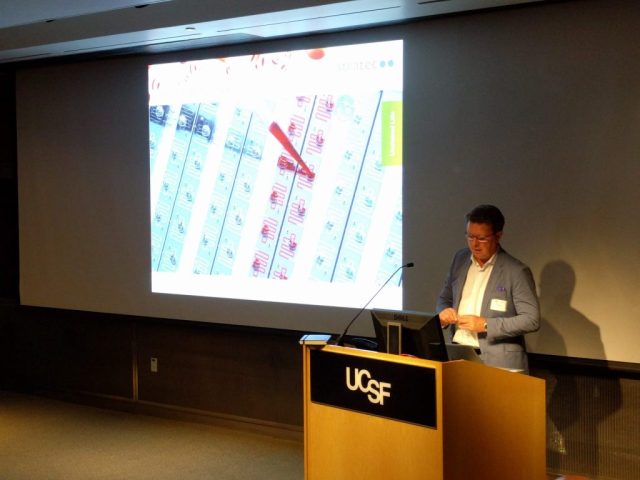
After the introduction by the organizing team and the message from the sponsor, the first keynote speaker, Prof. Adam Abate from UCSF, presented his group’s latest research on microfluidics-enabled platforms for single cell analysis and sequencing techniques and how he works simultaneously in academia and with microfluidic startup companies.
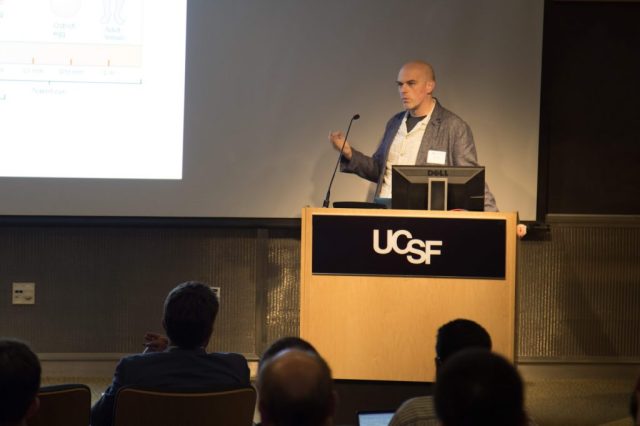
Following Prof. Abate’s talk, Dr. Barney Saunders shared his experiences of successfully commercializing seven different fluidic platforms. He emphasized the importance of moving to a “commercial-grade” chip as soon as possible and building a people-centered company culture.
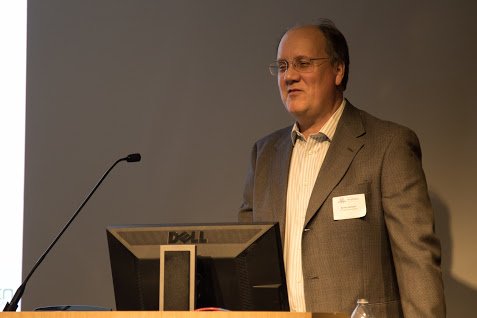
The third keynote speaker, Dr. Phil Spuhler from BD Gemonics, presented the commercialization process of two microfluidics products that he led. One is the BD Rhapsody Single-Cell Analysis System, a high throughput single cell genotyping platform, while the other is a microfluidic platform developed at Massachusetts General Hospital for the negative enrichment of circulating tumor cells from whole blood.
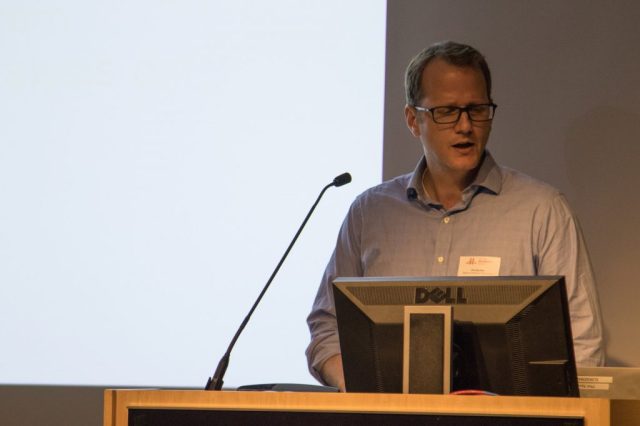
Following the three inspiring talks, Dr. Don Arnold, the CEO of Veristad (a technical and business consulting company) led a forty-minute interview-style discussion with the speakers. Dr. Arnold began by asking the three speakers deeper questions on challenges of commercializing microfluidic technologies. After stimulating the discussion, he invited the audience to participate in interactively. The audience asked questions such as when to introduce venture-backed funding and what the common frustrations are of working with a highly interdisciplinary team.
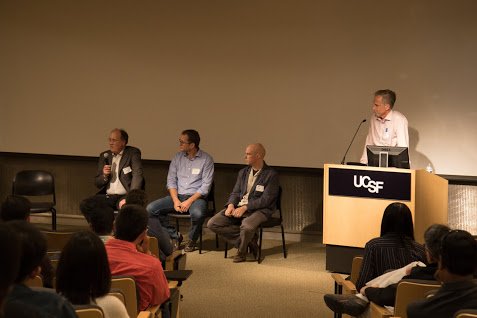
Following an insightful discussion between the speakers and the audience, the event ended around 9 pm. Participants enjoyed additional networking time with drinks afterwards at the Genentech Hall lobby.
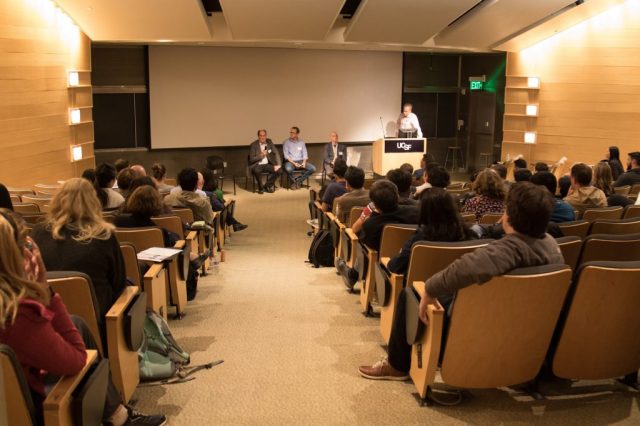
BAM’s “Challenges of commercialization” event at UCSF was another success. Attendees gave highly positive feedback and expressed a desire to participate in future events. Speakers also enjoyed the opportunity to present and the interactive discussion with the audience. BAM would like to thank STRATEC Consumables for sponsoring the event, Dr. Don Arnold for his invaluable efforts on moderating the discussion, the UC Berkeley-UCSF Bioengineering Association of Students for co-hosting and all the volunteers for helping with the logistics for the event.
